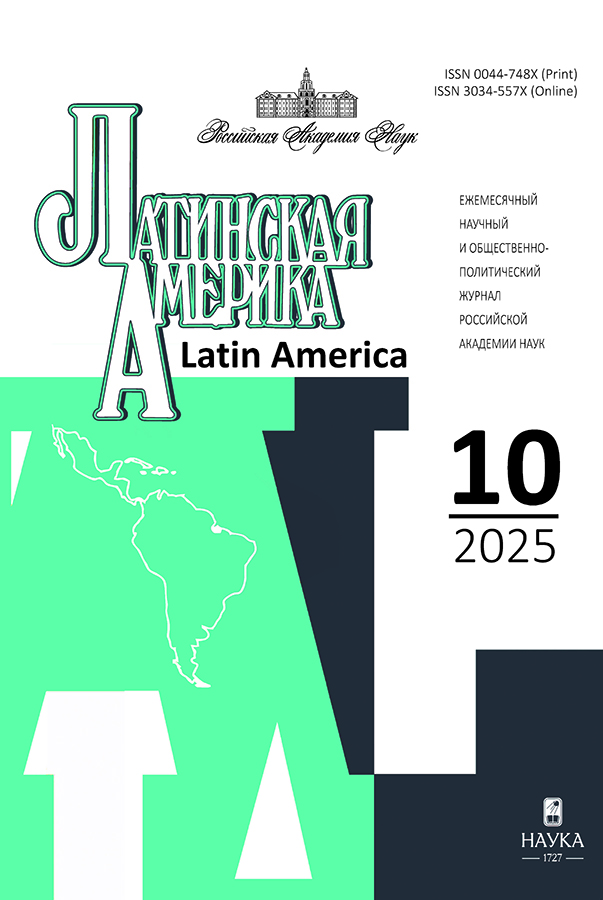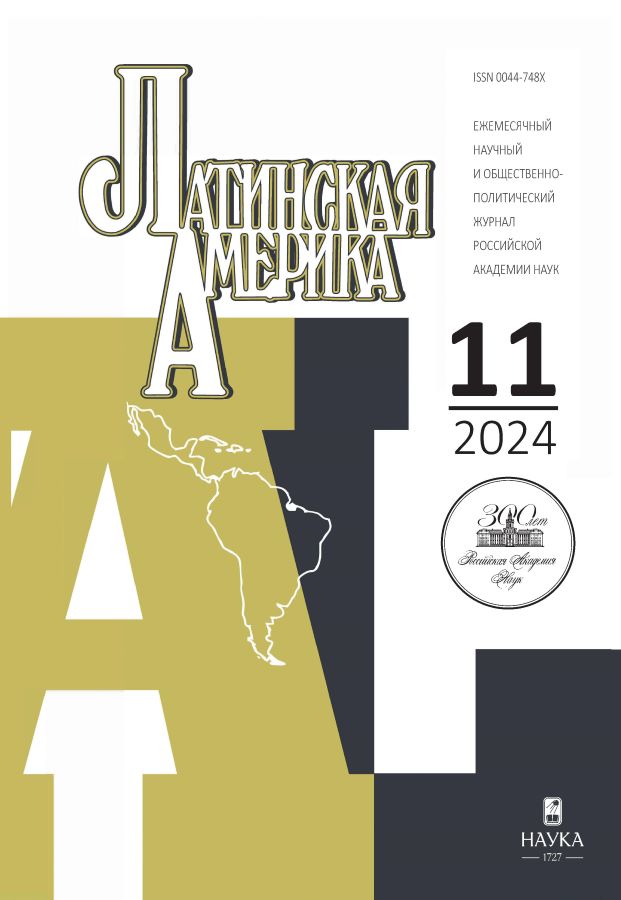№ 11 (2024)
Экономика
Экономика Португалии через полвека после «Революции гвоздик». Опыт концептуального осмысления
Аннотация
Португальская экономика подошла к 50-летию «Революции гвоздик» (25 апреля 2024 г.) в сравнительно хорошей форме. По мнению международных аналитиков, страна перестала быть «больным человеком» Европы, как ее именовали на рубеже первого и второго десятилетий XXI в., и переживает «золотой период» своей экономической истории, в частности, благодаря таким факторам, как структурная модернизация, рост экспорта и увеличение притока иностранных туристов. Но в основе нормализации хозяйственного положения страны лежали жесткие меры, принятые в рамках политики «бюджетного аскетизма», проводимой после кризиса 2008—2009 гг., и эти меры дорого обошлись миллионам португальцев, материальное положение которых существенно ухудшилось и до настоящего времени остается неустойчивым. Одним из факторов высокой социальной цены за финансово-экономическую стабилизацию стал рост количества эмигрантов: к 2020 г. их было более 2 млн человек (порядка 20% населения). Причем, в отличие от прежних волн эмиграции, когда выезжали неквалифицированные работники, сейчас основную часть покинувших страну составили образованные граждане. Но это — лишь один из новых вызовов, ответ на который Португалии предстоит найти в контексте происходящих в Европе и мире геоэкономических трансформаций.
Латинская Америка. 2024;(11):6-21
 6-21
6-21


Международные связи
Влияние политических и экономических взглядов Хавьера Милея на внешнюю политику Аргентины
Аннотация
В статье рассматриваются основные аспекты идеологии президента Аргентины Хавьера Милея и его первые действия на посту руководителя страны. Автор обращается к особенностям мировоззрения главы аргентинского государства в контексте внешней политики страны. На основании проведенного анализа делается вывод о степени и уровне влияния Х.Милея на внешнюю политику Аргентины.
Латинская Америка. 2024;(11):55-68
 55-68
55-68


Страницы истории
Участие индейцев в войне за независимость Чаркас
Аннотация
Война за независимость на территории современной Боливии продолжалась долгие 15 лет. Это была война освободительных походов, восстаний патриотов, партизанского движения, что сделало территорию колонии местом, где никакая победа роялистов не гарантировала спокойствия. Подавляющее большинство населения аудиенсии Чаркас — индейцы аймара и кечуа, труд которых обеспечивал благополучие колонии и стабильный доход метрополии. Это большинство во многом определяло будущее независимости Боливии. Индейцы стали важными действующими лицами Войны за независимость в Чаркас, от их позиции зависела судьба противников, но при этом индейцы никогда не принимали ни одну из сторон, а действовали в соответствии со своими конъюнктурными интересами, вступали в ситуационные альянсы с креолами, метисами и испанцами. Целью индейцев было сохранение «пакта взаимности» с миром белых — будь то с короной, будь то с патриотами, что предполагало автономию индейцев и гарантии ограничения эксплуатации. Индейцы стремились выжить в новых политических условиях, хотели, чтобы их образ жизни, особые права и интересы были признаны. Им удалось отстоять свой «проект» в рамках кардинальных перемен времен войны, поэтому тот факт, что буквально через пару лет после провозглашения независимости республиканские правительства восстановили старый режим, не вызвало недовольства и возмущения индейского населения.
Латинская Америка. 2024;(11):83-95
 83-95
83-95


Задолго до цивилизации майя: самая древняя в мире звездная карта в Гватемале
Аннотация
Проведенные в 2018—2020 гг. на территории Гватемалы полевые исследования на памятнике Каса-де-лас-Голондринас позволили задокументировать более 400 наскальных изображений, большая часть которых имеет абстрактную форму. Был также обнаружен скальный комплекс, выполнявший функции древней обсерватории. Благодаря анализу была выявлена самая точная для всего Древнего мира звездная карта, включающая Южный полюс. Датировки до 6 тыс. лет до н.э. предвосхищают появление первых месоамериканских цивилизаций.
Латинская Америка. 2024;(11):69-82
 69-82
69-82


Культура
 96-103
96-103


Размышляя о прочитанном
Антарктический вектор Южной Америки
Аннотация
В рецензии рассматривается коллективная научная работа, подготовленная сотрудниками Института Латинской Америки РАН под редакцией Н.Ю.Кудеяровой. В книге затрагиваются проблемы функционирования Системы Договора об Антарктике и деятельности латиноамериканских государств, вовлеченных в антарктическую повестку. Особое внимание уделено анализу правовых вопросов, истории становления антарктической политики стран Латинской Америки, а также ЮАР.
Латинская Америка. 2024;(11):104-110
 104-110
104-110


Юбилей
Профессору А.В.Шестопалу 80 лет
Латинская Америка. 2024;(11):22-23
 22-23
22-23


От души поздравляем!
Латинская Америка. 2024;(11):24-24
 24-24
24-24


Политика, социальные проблемы
Новая экологическая политика Бразилии
Аннотация
Статья посвящена анализу ключевых аспектов новой экологической политики Бразилии. Актуальность вопроса обусловлена заметной разницей между подходом правительства Жаира Болсонару (2019—2022 гг.), когда фактически игнорировались обязательства по защите тропических лесов Амазонии и сокращению выбросов парниковых газов, и позицией нынешнего кабинета Луиса Инасиу Лулы да Силвы (2003—2011; 2023 — н/в). Возвращение на президентский пост Лулы да Силвы, заявления и предпринятые им шаги в первые месяцы пребывания у власти свидетельствуют о выходе экологической повестки в число приоритетных как во внутренней политике, отвечающей интересам устойчивого развития страны, так и во внешней, что проявилось во взвешенной и последовательной линии по защите национальных интересов и интересов Глобального Юга на различных международных площадках, за устойчивое будущее планеты.
Латинская Америка. 2024;(11):25-39
 25-39
25-39


Социальный кризис на Кубе и перспективы его преодоления
Аннотация
В статье исследуется динамика социальных показателей Кубы и оценивается эффективность государственной политики, направленной на повышение уровня жизни граждан. По итогам анализа сделан вывод о наличии в стране системного социального кризиса и выдвинуто предположение, что оптимальной стратегией по выходу из него является усиление фискальной дисциплины.
Латинская Америка. 2024;(11):40-54
 40-54
40-54












